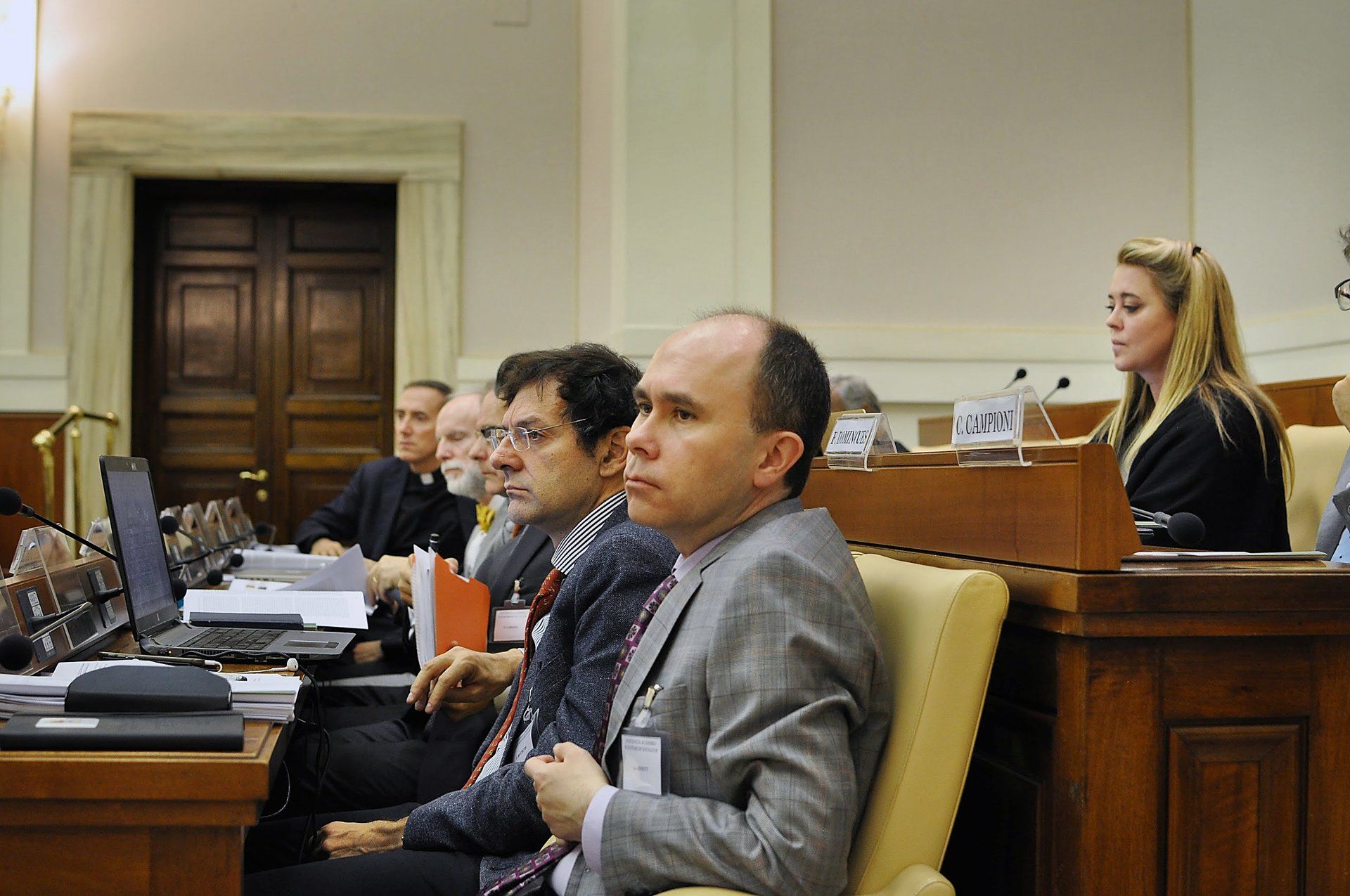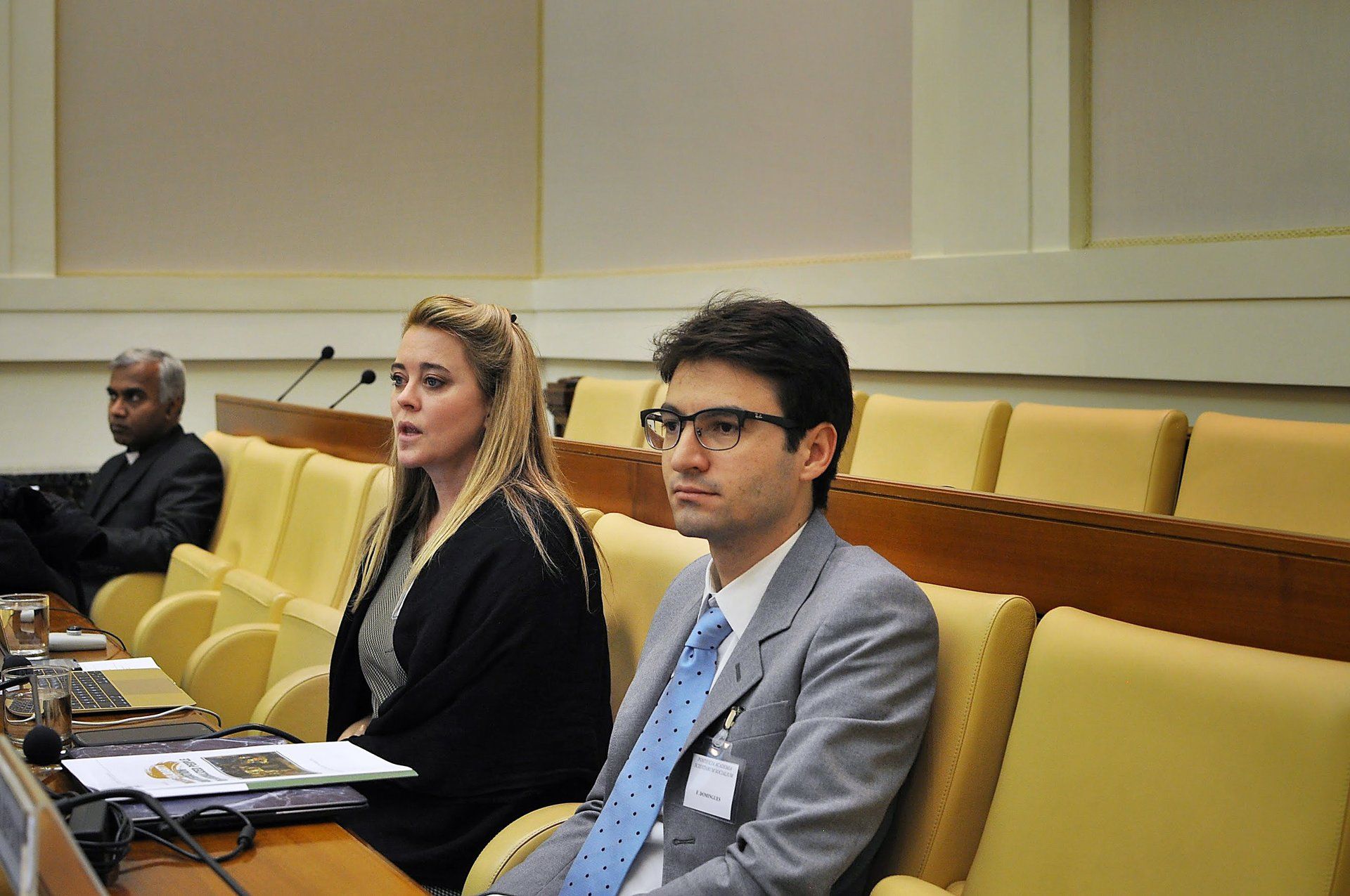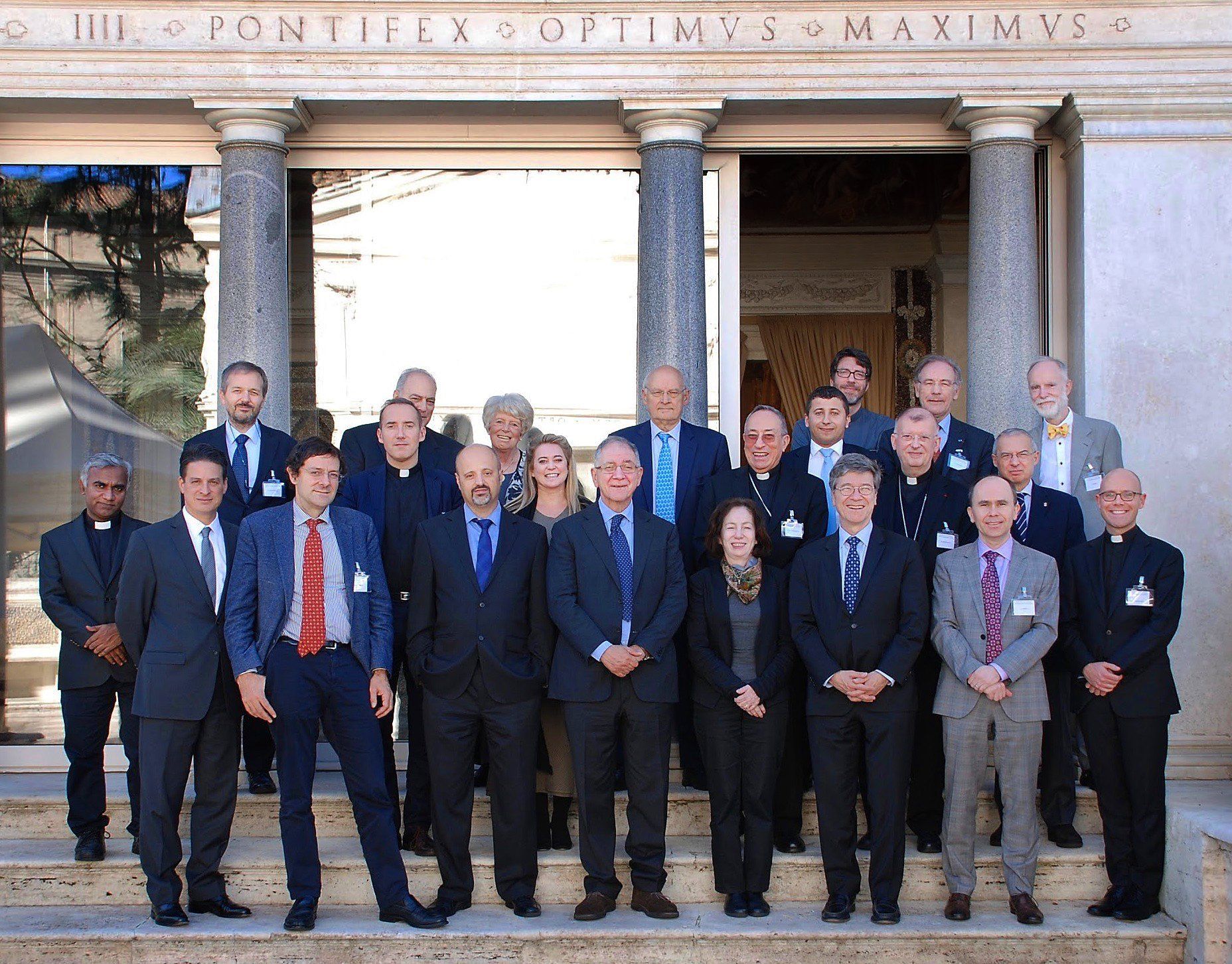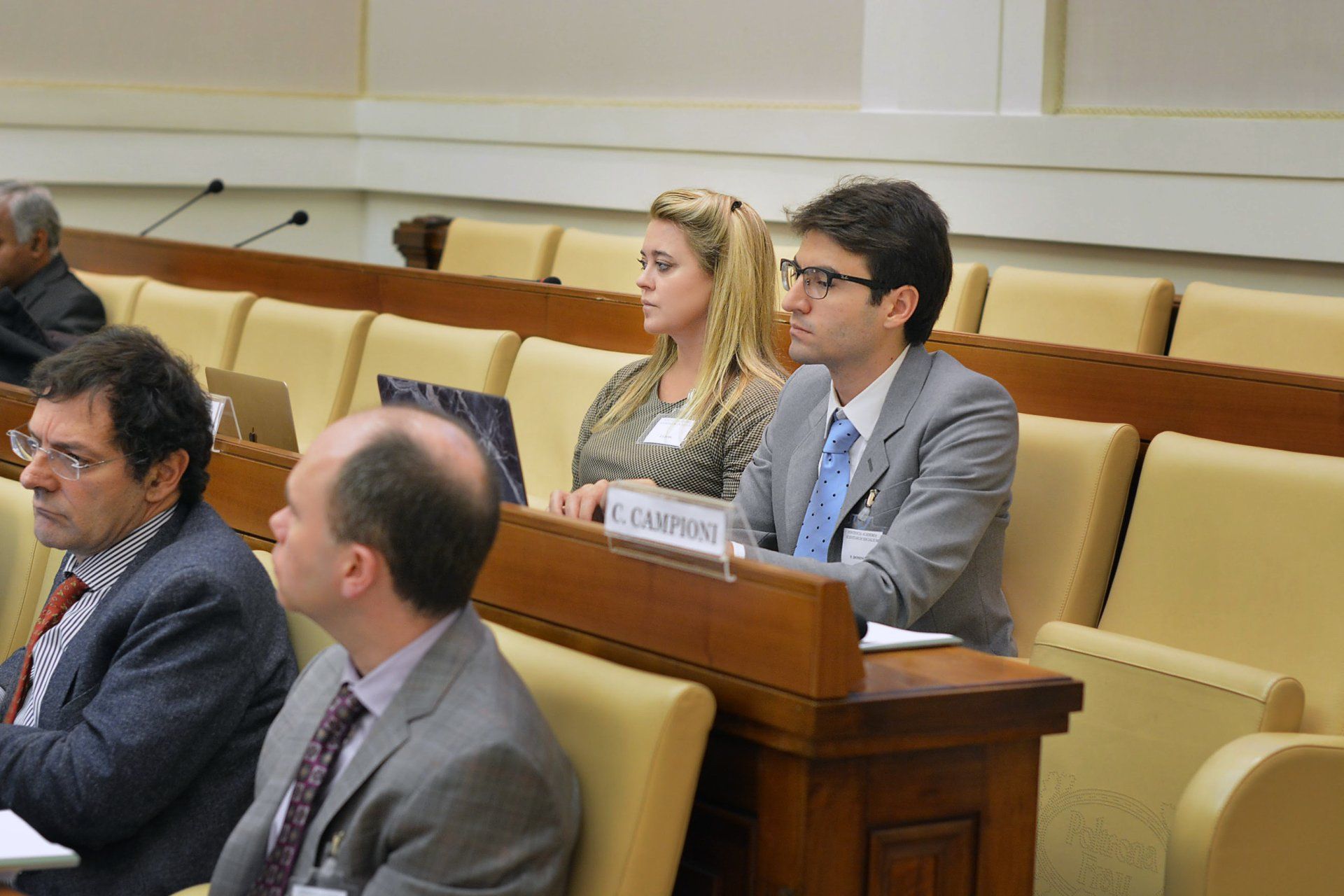[Casino Pio, Vatican City]—A workshop geared toward mobilizing local-to-global actions to achieve inclusive and sustainable development brought together a number of university representatives from across the country, philanthropic organizations such as Blue Chip Foundation, and a handful of Catholic religious leaders. Coined “Inclusive Solidarity and Integration of Marginalized People,” the workshop focused primarily on means of social inclusion to help lift people from extreme poverty.
“Social Inclusion can only occur when there are equal opportunities to participate in the operative movements that make up society,” says Gross. “The challenge is how to extend the benefits of a prosperous economy to those that are excluded.”
Typically, those most excluded are those suffering extreme poverty. (The United Nations’ definition of extreme poverty: An income of USD $1.25 per day.)
According to Jennifer Gross, the most effective route to inclusion is the promotion of decent work for all workers, in all sectors of the economy—including the informal economy. The workshop addressed what global leaders can do to bring billions of people out of the shadows, as nearly 20 percent of the world’s population lives under the UN’s definition of extreme poverty and an additional 40 percent scrape by with an income of less than USD $2 per day.
“The people we’re most concerned about are those being displaced, subjected to trafficking, and reduced to just numbers; they’re those who have been relegated to the shadows, existing only as ‘laboring bodies,’” says Gross, who aims to change that reality.
It’s impossible for marginalized people to engage in public reasoning process when they’re not even recognized as human beings, leading the workshop to explore possible grassroots campaigns to address the issues of urban segregation and exclusion.
“Poverty is a product of cultural habits, economic institutions, social structures and politics,” says Jennifer Stengaard Gross, founder of Blue Chip Foundation. “The emergence of social businesses at this time demonstrates huge potential for a shift in behavioral change. The economy needs the diversity that social enterprise provides to maintain it’s resilience.”
The panel’s statement says that there are positives, including the fact that the proportion of the world’s population living in extreme poverty has declined in the past 25 years. The gains have been greatest in East Asia, but they’re also present in Sub-Saharan Africa and South Asia, where the greatest regional concentrations of extreme poverty lie.
“Poverty and environmental degradation are stoking violence and conflicts in significant parts of Africa, the America’s, the Middle East, and Asia. The role of drought in Syria as a factor in the onset of the Syrian War has been scientifically demonstrated. Pope Paul VI wisely noted in Populorum Progressio (1967) that development is the new name of peace,’” says the group’s statement. Read the full statement here.




